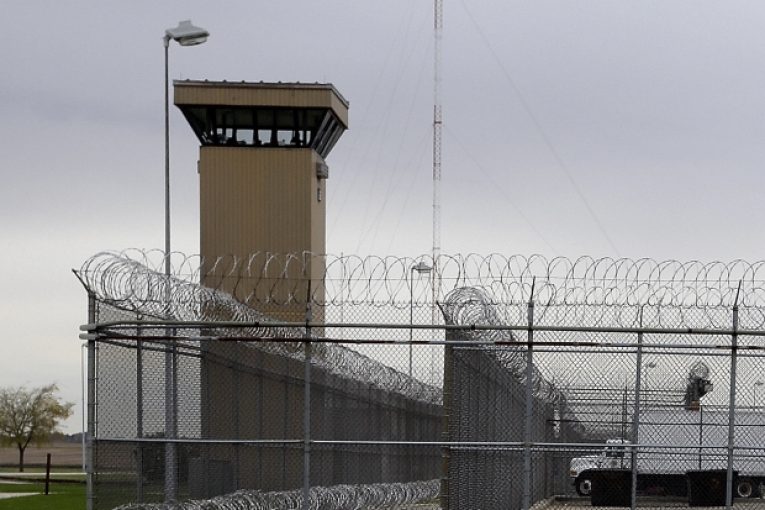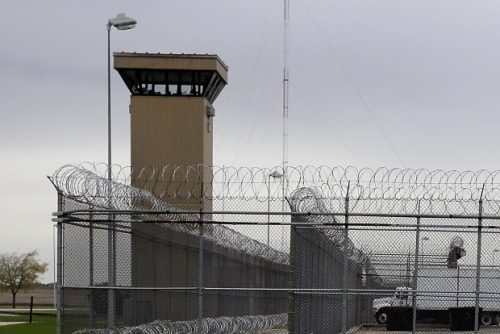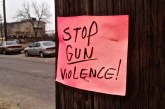

By Kritika Singh
UNITED STATES — Prison guards and other staff members in incarceration facilities across the country are refusing to be vaccinated against COVID-19 at rates that are alarming legislators and public health officials alike.
Coronavirus infection rates in prisons are more than three times higher than rates among the general public, yet only 49% of workers in the Federal Bureau of Prisons (BOP) have chosen to get vaccinated.
Staff members refusing vaccination have cited a wide variety of factors in their decisions, including concerns about possible side effects, distrust of the agencies managing the rollout, and general opposition against receiving vaccines.
Others simply believe that because they have contracted the coronavirus before and developed antibodies, it is not necessary for them to get vaccinated. Infectious disease physician Dr. Jaime Meyers says this would be a mistake, given that: “The degree of immunity that they develop from natural infection is really variable and we don’t think it lasts as long. It’s just not as robust a protection.” 
When questioned by members of the House of Representatives about the BOP’s vaccine distribution process, BOP director Michael Carvajal himself said he does not fully understand the reasons behind low vaccination rates. He explained to legislators, “I get guidance and counsel from people. Between my medical personnel, my legal personnel and … the human resource side, we have had extensive conversations. I assure you if I could compel it, just for the sake of, to me, common sense, I would do it.”
The central concern for public health officials regarding the situation is that workers’ refusal to get vaccinated will slow down efforts to control the pandemic both inside and outside of incarceration facilities. This is because prison staff are constantly moving between their workplaces—where 388,000 incarcerated individuals and 105,00 staff members have been infected in the past year—and their home communities.
A particular danger is present for the incarcerated, who are forced to reside in cramped and poorly-ventilated facilities where social distancing is often not feasible. Because of these unique conditions, at least six states have prioritized incarcerated folks in their vaccine rollout plans.
Others, such as Colorado Governor Jared Polis, remain adamantly opposed to this idea. Polis maintains his position that “[t]here’s no way it’s [the vaccine] going to go to prisoners… before it goes to the people who haven’t committed any crime.”
For those incarcerated individuals who have not been prioritized for vaccinations in their respective state’s rollout plans, the refusal of prison staff to opt in to the vaccine then brings some hope, as leftover vaccines are sometimes doled out to the incarcerated in order to prevent its wastage.
Some lawmakers have suggested that in order to address the crisis, the BOP considers making COVID-19 vaccines mandatory. Kelly Garcia, head of the Department of Public Health in Iowa (where a mere 52% of prison staff agreed to vaccination as of Jan. 8) opposes this idea.
She explained, “Right now, we are not making it a condition of employment, and that really is to give everyone an opportunity to make the choice … We have other ways that we will certainly incentivize individuals taking it at our state-operated facilities … You know, education is really key to this. We want to make sure our employees feel comfortable and have all of the material available at their fingertips to make the decisions that are best for them.”
Even those who disagree with Garcia’s position agree that education is critical to improving vaccination rates among prison staff. Brian Dawe, national director of the policy/advocacy group for law enforcement officers, One Voice United, brought up the fact that “[correctional staff] get a lot of their information from the right-wing media outlets… a lot of them believe you don’t have to wear masks. That it’s like the flu.”
This trend has motivated researchers to take measures such as developing frequently asked questions flyers in an effort to educate the incarcerated, despite the actions of the staff members they are surrounded by.
Both the incarcerated and some staff members are concerned that if vaccination rates do not improve in the near future, prisons will once again reach their breaking points. The situation brings back bitter memories from last year, when the National Guard was called upon to run incarceration facilities suffering from a shortage of staff members.
Bringing in the National Guard has the potential to exacerbate an already dire public health situation, as increasing the number of people going in and out of prisons is likely to increase transmission. Rufus Bowman, who is incarcerated at the Toledo Correctional Institution in Ohio, says, “We don’t have COVID. We can’t give [the National Guard] COVID … But they can give us COVID.”
 Kritika Singh is a writer for The Vanguard at Berkeley’s prison reform desk. She is a freshman at UC Berkeley studying Political Science. She is from Tracy, CA.
Kritika Singh is a writer for The Vanguard at Berkeley’s prison reform desk. She is a freshman at UC Berkeley studying Political Science. She is from Tracy, CA.
To sign up for our new newsletter – Everyday Injustice – https://tinyurl.com/yyultcf9
Support our work – to become a sustaining at $5 – $10- $25 per month hit the link:




